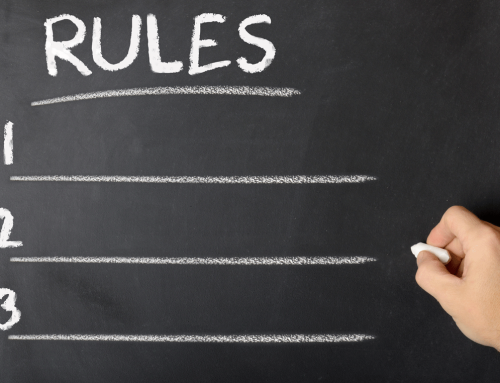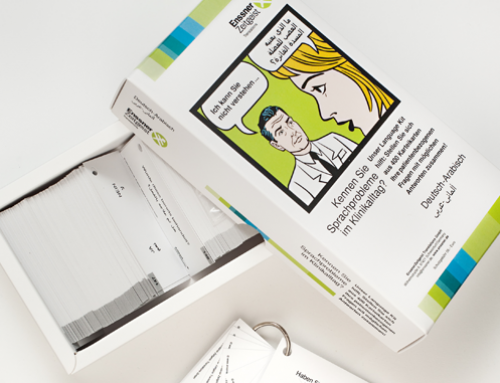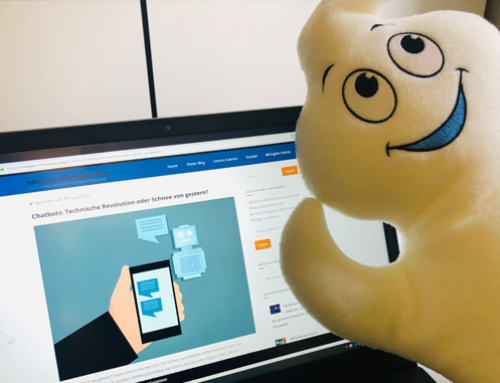Business language:
how to word international emails correctly.
how to word international emails correctly.
“Freundliche Grüße/Viele Grüße/Herzliche Grüße/Beste Grüße” – there are many different ways to end an email in German. The Germans like to mix things up and use phrases like “Sonnige Grüße” or “Viele Grüße aus XY” to add variety to the many emails we write every day. According to Statista, approximately 848.1 billion emails were sent in Germany in 2018 – both private and business. We also want to stand out from the crowd and ensure that our business partners or customers remember us thanks to our somewhat more creative wording.
Business emails are no longer as formal as a business letter, for example. As a result, it is quite normal to use more informal and personalised wording, especially if you have been working together with the other person for many years.
Even emails in English are no longer a rarity. The ongoing globalisation of our business landscape means that we have more and more to do with international business partners and customers. It is an advantage to know certain customs here too. We have put together a few of them for you:
For the British, the first email contact should be formal and polite. After that though, the formal address and wording are no longer necessary and the emails become increasingly informal. It is also a good idea to avoid writing long texts.
In our neighbouring country of France (be careful, they call an email a “courrier éléctronique” (short: “courriel”) the style resembles the German one: generally polite and a not too short.
Russia, on the other hand, does things a little different. The form of address, closing words and niceties are often omitted here. The longer the contact exists, the more this kind of formalities is simply omitted, but this is by no means to be understood as impolite.
To help you dazzle your international business partner or customer with your next email despite the metaphorical minefield of email conventions, we have put together a little something. Impress your business partners and customers by adding a greeting or closing words in theier local language.
You will find a small selection here that you can use to impress in your next email.
Here’s how to proceed: Simply choose the appropriate wording and include the translation in your email. Whether formal or informal – you are sure to find what you are looking for in our compilation.
Formal:
| Language | Sehr geehrter Herr xx/ Sehr geehrte Frau xx |
Guten Morgen Herr xx/ Guten Morgen Frau xx |
Vielen Dank für Ihre E-Mail. |
Ich wünsche Ihnen ein schönes Wochenende! |
Freundliche Grüße |
|---|---|---|---|---|---|
| English (UK) | Dear Mr xx/ Dear Ms xx |
Probably not in a formal letter. | Many thanks for your email. | Probably not in a formal letter. | Yours sincerely, (name of the recipient known) Yours faithfully, (name of the recipient not known) |
| French | (Cher) Monsieur, / (Chère) Madame, |
Bonjour, | Merci beaucoup de votre e-mail. | Je vous souhaite un bon week-end ! | Meilleures salutations, |
| Spanish | Estimado Sr. xx: / Estimada Sra. xx: |
Buenos días, Sr. xx: / Buenos días, Sra. xx: |
Muchas gracias por su mensaje. | Le deseo un feliz fin de semana. | Atentamente |
| Italian | Gentile sig. xx / Gentile sig.ra xx |
Buongiorno sig. xx / Buongiorno sig.ra xx |
Grazie per la Sua e-mail. | Le auguro un buon finesettimana! | Cordiali saluti |
| Dutch | Geachte meneer xx/ Geachte mevrouw xx |
Goedemorgen meneer xx/ Goede morgen mevrouw xx |
Hartelijk dank voor uw e-mail. | Ik wens u een fijn weekend! | Met vriendelijke groeten |
| Russian | Уважаемый г-н ХХ/Уважаемая г-жа ХХ | Доброе утро, г-н ХХ/Доброе утро, г-жа ХХ | Благодарю Вас за письмо. | Желаю Вам хороших выходных! | С уважением, |
| Estonian | Lugupeetud härra xx!/ Lugupeetud proua xx!/ |
Tere hommikust, härra xx!/Tere hommikust, proua xx! | Suur tänu e-kirja eest! | Ma soovin Teile ilusat nädalavahetust! | Heade soovidega |
| Lithuanian | Gerbiamasis pone xx / Gerbiamoji ponia xx |
Labas rytas, pone xx / Labas rytas, ponia xx |
Dėkojame už jūsų laišką. | Linkiu jums gražaus savaitgalio! | Nuoširdūs linkėjimai |
| Latvian | Godātais xx kungs! / Cienījamā xx kundze! | Labrīt, xx kungs! / Labrīt, xx kundze! | Pateicamies par Jūsu e-pasta ziņojumu. | Jauku Jums nedēļas nogali! | Ar draudzīgiem sveicieniem |
| Polish | Szanowny Panie xx/Szanowna Pani xx | Dzień dobry Panie xx/Dzień Dobry Pani xx | Dziękuję za Pana/Pani e-mail (first person singular) / Dziękujemy za Pana/Pani e-mail (first person plural) | Życzę udanego weekendu! | Łączę pozdrowienia (first person singular) / Łączymy pozdrowienia (first person plural) |
Informal:
| Language | Hallo Herr xx/ Hallo Frau xx |
Vielen Dank für Ihre E-Mail. | Ich wünsche Ihnen ein schönes Wochenende! | Viele Grüße aus Deutschland | Viele Grüße |
|---|---|---|---|---|---|
| English (UK) | Dear Mr xx/ Dear Ms xx |
Many thanks for your email. Thank you for your email. |
In EN rather unusual, “Have a lovely weekend” (very informal) |
Rather unusual, in EN, if at all, then “Best wishes from Germany” | Best wishes, Kind regards, |
| French | Bonjour Monsieur / Bonjour Madame |
Merci de votre e-mail. | Je vous souhaite un bon week-end ! | Un grand bonjour d’Allemagne (not really usual) | Cordialement, |
| Spanish | Hola:/ Hola: |
Muchas gracias por tu mensaje. | Te deseo un feliz fin de semana. | Muchos saludos desde Alemania | Muchos saludos |
| Italian | Salve sig. xx/ Salve sig.ra xx |
Grazie per la Sua e-mail | Le auguro un buon finesettimana | Tanti saluti dalla Germania | Saluti |
| Dutch | Hallo meneer xx/ Halle mevrouw xx |
Hartelijk dank voor uw e-mail | Ik wens u een fijn weekend! | Hartelijke groeten uit Duitsland | Hartelijke groeten |
| Russian | Здравствуйте, г-н ХХ/Здравствуйте, г-жа ХХ | Спасибо за Ваше письмо. | Желаю Вам замечательных выходных! | Привет из Германии | С уважением, |
| Estonian | Tere, härra xx!/Tere, proua xx! | Suur tänu e-kirja eest! | Head nädalavahetust! | Palju tervisi Saksamaalt | Palju tervisi |
| Lithuanian | Sveiki, pone xx Sveiki, ponia xx |
Dėkojame už jūsų laišką. | Linkiu jums gražaus savaitgalio! | Linkėjimai iš Vokietijos | Linkėjimai |
| Latvian | Sveiki, xx! / Sveiki, xx! | Paldies par Jūsu e-pastu. | Jauku nedēļas nogali! | Sirsnīgi sveicieni no Vācijas! | Ar sirsnīgiem sveicieniem |
| Polish | Witaj | Dziękuję za Twój e-mail (first person singular) / Dziękujemy za Twój e-mail (first person plural) | Życzę udanego weekendu! | Serdeczne pozdrowienia z Niemiec | Pozdrawiam (first person singular) / Pozdrawiamy (first person plural) |
A bit of assistance.
Simply contact us if you would like to know more.
Franziska Knüttel
Phone: +49 (0)9721 7035-18
franziska.knuettel@enssner.de
EnssnerZeitgeist
Translations GmbH
97421 Schweinfurt, Germany






